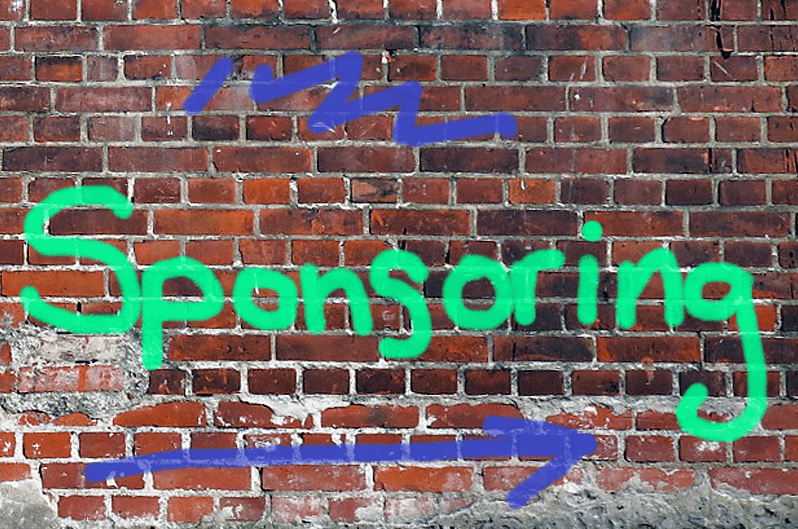Ask Securities Lawyer 101 l Rule 144 Q & A

What is Section 5 of the Securities Act of 1933?
Section 5 of the Securities Act states that all offers and sales of securities must be registered under the Securities Act or exempt from the registration requirements.
What is the “safe harbor” of Rule 144? Read More
OTCQX and OTCQB Recognized as Established Public Markets
On May 16, 2013 the Securities and Exchange Commission (the “SEC”) updated its Established Public Market policy concerning the OTCMarkets OTCQX and OTCQB in its Compliance and Disclosure Interpretations in question 139.13. The SEC confirmed that the OTCMarkets OTCQX and OTCQB are now considered “established public markets” for the purpose of determining the public market price when registering securities for resale with the SEC in equity line financings.
The SEC’s decision comes after a decade of changes and improvements in technology, transparency and regulation in the OTCMarkets OTCQX and OTCQB marketplaces. The SEC’s changes mark an important development for SEC reporting issuers trading on the OTCMarkets. Until now, these issuers have not been able to rely upon the stability, depth and breadth of broker-dealers quoting and trading on the OTCQX and OTCQB marketplaces to establish a public market price when raising capital. Read More
SEC Charges Laidlaw and Its CEO for Securities Violations
On June 5, 2013, the Securities and Exchange Commission (the “SEC”) charged penny stock issuer, Laidlaw Energy Group. According to the SEC charges, Laidlaw and its CEO, Michael B. Bartoszek sold more than two billion unregistered and non-exempt shares of Laidlaw’s common stock in 35 issuances to three commonly controlled buyers at heavily discounted prices. Laidlaw received $1.2 million in proceeds.
Laidlaw is purportedly a developer of facilities that generate electricity from wood biomass. According to the SEC, Laidlaw’s sole source of income was the illegal offering proceeds. According to the SEC charges, Laidlaw failed to disclose to investors that it had issued the large blocks of unrestricted shares to the three buyers or that it relied on the proceeds to fund all of its operations. Read More
Ask Securities Lawyer 101 l Rule 506 Q & A
Private placements are a cost effective and relatively quick way for private companies to raise capital prior to a going public transaction. They are an appealing option because they are much less expensive and do not require as much time as an initial public offering or registration statement. The most commonly used exemption in private placements is Rule 506 of Regulation D. This blog post addresses the common questions we receive about private placement offerings made in reliance upon Rule 506. Read More
Ask Securities Lawyer 101 l Short Sale Q & A
 Short selling can be a legitimate trading strategy. It is often endorsed for its beneficial effects on the securities markets, which include increasing liquidity. It is also criticized. Short sellers profit by identifying companies that are weak or overvalued, and companies whose shares have been manipulated to rise to artificially high share prices. The most widely misunderstood aspect of a short sale is under what circumstances it becomes illegal. Read More
Short selling can be a legitimate trading strategy. It is often endorsed for its beneficial effects on the securities markets, which include increasing liquidity. It is also criticized. Short sellers profit by identifying companies that are weak or overvalued, and companies whose shares have been manipulated to rise to artificially high share prices. The most widely misunderstood aspect of a short sale is under what circumstances it becomes illegal. Read More
Ask Securities Lawyer 101 l Form D Q & A
Form D Question & Answer
The most common exemptions used by companies to sell stock prior to going public are those found in Regulation D of the Securities Act. Many private companies going public do not realize that a filing with the SEC is required even for offerings to initial shareholders in private placements made under Regulation D. This blog post addresses common questions we receive about Form D’s requirements.
Q. What Is a Form D?
OTC Markets OTC Pink Market Lawyer Q & A
OTC Markets Pink Sheet
Q. What are the benefits of listing on the OTC Markets OTC Pink Sheets?
A. There are a couple of benefits for companies opting to list on the OTC Pink Sheets.
Pink Sheet listings are much less expensive and the disclosure requirements are less stringent than a listing on the OTC Markets OTCQB because audited financial statements are not required. Despite that audited financial statements are not required, issuers Read More
DTC Eligibility Question & Answer – Going Public Attorney
Q. What is The Depository Trust Company (DTC)?
A. DTC is the only stock depository in the United States.
Q. Why is DTC so important to public companies?
A. When DTC provides services as the depository for an issuer’s securities, its securities can trade electronically. Without DTC eligibility, it is almost impossible for an issuer to establish an active market in its stock.
Q. How do public companies obtain DTC eligibility?
A. Issuers must satisfy specific criteria to receive initial DTC eligibility, and to remain DTC eligible. In order to do so, the issuer must provide an opinion from its securities and/or going public attorney. Even after those securities become eligible, DTC may limit or terminate its services. Read More
Can Finders Raise Funds without Registration as a Securities Broker?
 Companies seeking capital are frequently approached by finders who offer to find investors in exchange for a percentage of funds raised. Most finders are not registered as broker-dealers with the Securities and Exchange Commission (the “SEC”). The possibility of receiving money even through the efforts of a finder creates a tempting opportunity for issuers and a lucrative proposition for the finder. While it may seem harmless enough, the SEC does not think so, and in fact, the SEC frequently brings cases against unregistered finders and those who aid and abet them. Read More
Companies seeking capital are frequently approached by finders who offer to find investors in exchange for a percentage of funds raised. Most finders are not registered as broker-dealers with the Securities and Exchange Commission (the “SEC”). The possibility of receiving money even through the efforts of a finder creates a tempting opportunity for issuers and a lucrative proposition for the finder. While it may seem harmless enough, the SEC does not think so, and in fact, the SEC frequently brings cases against unregistered finders and those who aid and abet them. Read More
SEC Charges NASDAQ for Facebook IPO l Securities Lawyer 101

On May 29, 2013, the SEC charged NASDAQ with violating the securities laws as a result of its poor systems and decision-making during the initial public offering (IPO) and secondary trading of Facebook’s common shares. NASDAQ has agreed to pay the largest settlement ever handed down against an exchange – $10 million. Read More
Short Sales 101 – Going Public Attorneys
 In recent years, the activities of short sellers have been the subject of considerable controversy. While the average investor profits if he invests in a stock whose price increases, a short seller profits when a stock’s price declines. While short selling is a simple process, it is widely misunderstood. Simply put, a short sale is the sale of a security that the seller does not own.
In recent years, the activities of short sellers have been the subject of considerable controversy. While the average investor profits if he invests in a stock whose price increases, a short seller profits when a stock’s price declines. While short selling is a simple process, it is widely misunderstood. Simply put, a short sale is the sale of a security that the seller does not own.
Short sales can only be made on margin, and all the rules applicable to margin trading are enforced. To sell short, a trader must borrow stock and then sell it into the market. The sale is not complete until the trader ensures delivery of the security to the new buyer. His or her brokerage firm arranges the loan. The stock may come from the firm’s own inventory, the accounts of other clients on margin, or from another lender. Read More
Rule 144 For OTC Pink Companies – Going Public Lawyers

How Can I Register Shares On Form S-8 ?
Registration of securities on Form S-8 (“Form S-8”) is a short-form registration statement under the Securities Act of 1933, as amended (“Securities Act”). Form S-8 is available to register securities offered to employees and consultants under benefit plans under limited circumstances. Because a registration statement on Form S-8 is effective upon filing it offers benefits to Securities and Exchange Commission (“SEC”) reporting companies, most significantly that an S-8 registration statement becomes effective upon filing and the shares registered may be issued without a restrictive legend. Read More
Informational Requirements of Rule 144 – Rule 144 Legal Opinion Requirements

Rule 144(c) of the Securities Act of 1933, as amended (the “Securities Act”) requires that stockholders of public companies relying upon Rule 144 satisfy its adequate current public information requirement. The requirements depend upon whether the issuer is a reporting or non-reporting company.
SEC Reporting Companies l Adequate Current Public Information
Rule 504 l OTC Pink Offerings
Rule 504 of Regulation D is a transactional exemption from the registration requirements of the Securities Act of 1933, as amended (the “Securities Act”) for non-reporting companies when they offer and sell securities. OTC Pink Sheet issuers often rely upon Rule 504 to offer and sell their securities.
Maximum Offering Amounts l Rule 504 Offerings
The aggregate amount raised for an offering of securities under Rule 504 cannot exceed $1,000,000, less the aggregate offering price for all securities sold within the twelve months before the start of and during the offering of securities under this Rule 504, in reliance on any exemption under section 3(b), or in violation of section 5(a) of the Securities Act. Read More
Form 10-Q Requirements l Securities Lawyer 101 Blog
Public companies with a class of securities registered under Section 12 or subject to Section 15(d) of the Securities Exchange Act of 1934, as amended (the “Exchange Act”), are subject to the periodic and current reporting requirements of Section 13 or 15(d) of the Securities Exchange Act. The Exchange Act contains ongoing disclosure requirements that provide investors with current information on an ongoing basis. These include an obligation to file periodic reports on Form 10-K and Form 10-Q and current reports on Form 8-K with the Securities and Exchange Commission (the “SEC”). Read More
Rule 504 l OTC Markets OTC Pink Market Checklist
Rule 504 of Regulation D is a transactional exemption from the registration statement requirements of the Securities Act of 1933, as amended (the “Securities Act”) for non-reporting companies when they offer and sell securities. OTC Pink Sheet issuers often rely upon Rule 504 to offer and sell their securities.























